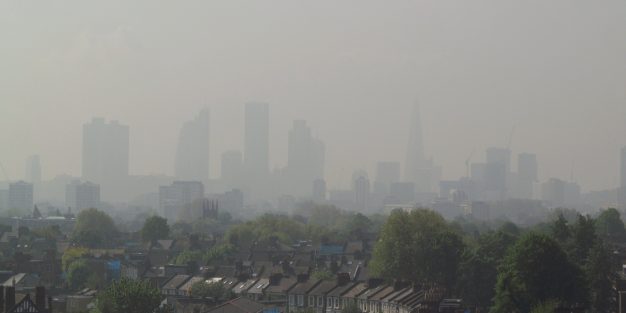
‘Toxic school run’ threatens health of London children
Schoolchildren in London are exposed to more than 60 per cent of their daily air pollution intake during the school run and while at school, suggests new research.
UNICEF UK has warned that dropping off and picking up children from school are peak periods of exposure which are damaging the health of thousands of schoolchildren across the UK. This is despite accounting for only 40 per cent of their time each day. Exposure levels are thought to be lowest when children are at home
This worrying trend, says the charity, provides further evidence of the urgent need for Government action to address children’s vulnerability to toxic air, when and where it is most harmful.
Unsafe levels
Carried out in partnership with Queen Mary University of London, the report – The Toxic School Run – focuses on London but Unicef UK is planning to commission further similar studies in other UK cities and towns. With one in three children in the UK already growing up in areas with unsafe levels of air pollution. Unicef UK warns not enough is being done to protect society’s most vulnerable from the harmful effects of toxic air.
The study focuses on black carbon, a form of particulate matter. These tiny particles are the most dangerous pollutant for our health due to their ability to penetrate deep into the lungs and enter the bloodstream and potentially the brain. For babies and children, exposure during these critical stages of development can stunt their lung and brain growth and cause life-long respiratory conditions, such as asthma.
Black carbon
A group of children were given a MicroAeth personal monitor to carry around, enabling researchers to monitor their exposure to black carbon, and identify peaks. Monitoring took place over a 24-hour period on a weekday in order to assess the points at which children are most exposed to black carbon on a ‘normal’ school day.
The report says that youngsters may be exposed to higher pollution levels in cars than outside, because of emissions circulating inside vehicles, and are also more likely to live in deprived areas which tend to be exposed to higher levels of pollution.
Amy Gibbs, UNICEF UK’s Director of Advocacy, says: “The results of this research are distressing. Every day, thousands of children across the UK are setting off on a toxic school run that could impact their lifespan and contribute to serious long-term health problems. Parents already have numerous worries about health and safety risks to our children. The quality of air they breathe in the playground or as they walk to school should not be yet another burden.
‘Matter of urgency’
“We cannot afford to continue to overlook this invisible but serious threat; change is possible if the Government acts now. It is critical that it sets out a clear strategy with sufficient funding to protect children from the harmful effects of toxic air, when and where they are proven to be most at risk.”
Lucy Harbor is mum to Leo (7) and an active air pollution campaigner. She says: “Leo’s school is on a busy main road, with around 500 buses stopping outside the playground during the school day. Leo has experienced respiratory problems in the past and on his first day of school, I was shocked by how many other parents handed the teacher asthma medication too.
“It’s hard not to worry that living where we live, near to a busy main road, and going to school where he does may have affected his lungs. Moving house to a less polluted area is very expensive and is not a solution that everyone who’s experiencing poor air quality can afford. So what we need to do as a matter of urgency is tackle the pollution where we live and where schools and nurseries are located.”
The World Health Organization (WHO) says 4.2 million people – including around half a million children – die from the effects of air pollution every year. The WHO website has various studies and statistics available to download.




